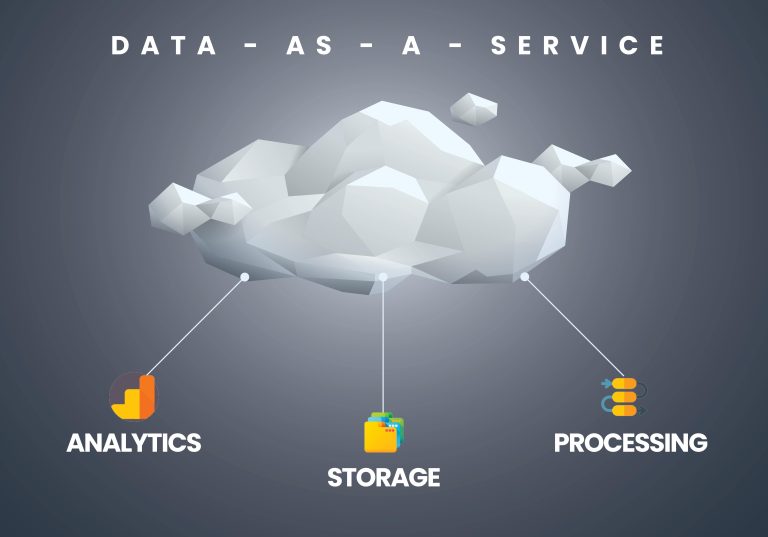Data as a Service (DaaS) 101: The basics and beyond
February 01, 2023
Futuristic organisations are busy modernising their existing infrastructure and shifting to the cloud. Data as a Service (DaaS) is a critical enabler for modern data integrations, storage, advanced data analytics, and data management. This approach can augment the agility of data workloads, increase reliability, and work on a robust data management approach. In this article, let’s review the ins and outs of data as a service and why it should be your top choice.
So, what exactly is Data as a Service (DaaS)?
Data as a Service (DaaS) is a cloud-based data management strategy that uses the flexibility and limitless resources of the cloud to integrate, store, process, and analyse mission-critical enterprise data. It allows businesses to integrate disparate sources into a seamless hub where data can move freely without being soiled by legacy systems. DaaS architecture is stored in the cloud and accessible via multiple devices.

According to future market Insights, DaaS adoption is expected to surge in developing regions and the overall demand for Data as a Service (DaaS) is projected to reach USD 68,724.9 million by 2032.
Why organizations are shifting to DaaS
Forward-looking enterprises are shifting to DaaS from their legacy systems; on a high level, let’s see what core benefits organizations can derive from the DaaS approach:
· Lower Total Cost of Ownership (TCO)
According to requirements, DaaS users can scale up or down according to circumstances. DaaS is a cloud-based approach, which is why it offers freedom in storage and flexibility in payments. Organizations have options to choose multiple payment models. Moreover, organizations can pay for exactly what resources are needed to handle particular tasks.
· Agility
One of the most important benefits of data as a service is agility. For many organizations, DaaS provides an excellent platform for treating critical business assets and implementing effective data management. Faster data access provides purpose-built analytics that serve exceptional business use cases. Also, the DaaS model cuts down on the amount of time spent looking for information, allowing more time for analyzing and acting upon it.
· Workflow augmentation
The DaaS model does not hinder any process; instead, it augments the workflow. Organizations need in-depth understanding immediately for a seamless customer experience to provide value. Additional dashboards are easier to integrate for data companies and uplift end users’ experiences while also answering well-defined customers’ problems.
· Better governance
Maintaining in-house data management can be expensive but also risky. DaaS data architecture works on a robust governance architecture that ensures safety against any security breach. Because the database is virtually off-site, there is nothing to break into.
· Data-driven organizational culture
Businesses may face multiple challenges in implementing proper data democratization in the organization. DaaS architecture allows organizations to integrate and deliver the right information to the right departments and teams, ultimately nurturing a data-driven business culture. By using this methodology, data becomes a valuable asset for everyone that can be shared within the teams and with other stakeholders.
Conclusion
In conclusion, DaaS is the best-in-class data management architecture for growing organizations that understand the actual value of quicker data insights. Enabling business users to become more dependent on robust insights generated from data for quicker business decisions. Moreover, it also alleviates business risk, increases your firm’s chances of survival, gives you a competitive edge, and eliminates the guesswork for futuristic decision-making. Data and data-driven services are at the core of any organization, get in touch with the experts at Systems Limited to explore how you can leverage DaaS to your business advantage.
Quick Link
You may like
How can we help you?
Are you ready to push boundaries and explore new frontiers of innovation?



